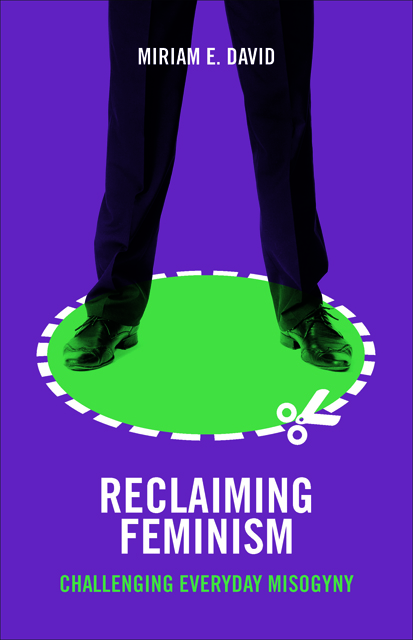Book contents
- Frontmatter
- Contents
- About the author
- Acknowledgements
- A note about the waves of feminism
- one Feminist reflections on a lifetime in academe
- two Changing feminism
- three Feminist pioneers
- four Gender and generations
- five Cultivating feminists
- six A feminist resurgence
- seven Feminists on campus
- eight Feminist fortunes
- References and select bibliography
- Index
five - Cultivating feminists
Published online by Cambridge University Press: 15 April 2023
- Frontmatter
- Contents
- About the author
- Acknowledgements
- A note about the waves of feminism
- one Feminist reflections on a lifetime in academe
- two Changing feminism
- three Feminist pioneers
- four Gender and generations
- five Cultivating feminists
- six A feminist resurgence
- seven Feminists on campus
- eight Feminist fortunes
- References and select bibliography
- Index
Summary
Beverley Skeggs, well-known feminist professor of sociology at Goldsmiths College, University of London, is representative of the slowly changing zeitgeist of the 1970s, coming into feminism as part of the second generation (born in the 1950s), having learned from her slightly elder sisters. As ‘first-in-the-family’ to go to university, she is concerned about class and gender in her studies, initially with teaching schoolchildren. As HE expanded, the tendency for women with working-class backgrounds being ‘first-in-the-family’ to go to university increased, including as mature married women/mother students. Interestingly, too, many began their careers as teachers from either college or university. These feminists born around the Second World War or those from the baby boom era mostly set out with no expectations about becoming academics, forging educational lives in schools, only returning later to HE as mature (married) women students. In the UK, this was a period of unparalleled growth in mature women students that Mrs Thatcher, ironically, codified while she was Secretary of State for Education in the early 1970s by initiating a policy of university expansion for mature students, the majority of whom were inevitably women. Under Thatcherism and Reaganism in the US in the 1980s, women increasingly entered college or university.
The entwined issues of class and gender remain of abiding import for these feminists. Bev Skeggs neatly encapsulates this in the comment she posted on Facebook on 14 March 2014:
Three men representing the upper (Tony Benn), middle (Stuart Hall) and working (Bob Crow) sectors of the class divide die. So tragic. They all campaigned relentlessly against inequality and made a huge difference to people’s lives in many ways, all “speaking truth to power”, all uncompromising in their own ways. Their combined struggle is formidable and we really need to keep their legacies alive – from wherever we are, doing whatever we can, whenever we can.
She garnered tremendous support for this statement about these three socially radical men, who, in their different ways, were all sympathetic to feminist as well as socialist ideals.
- Type
- Chapter
- Information
- Reclaiming FeminismChallenging Everyday Misogyny, pp. 117 - 142Publisher: Bristol University PressPrint publication year: 2016

